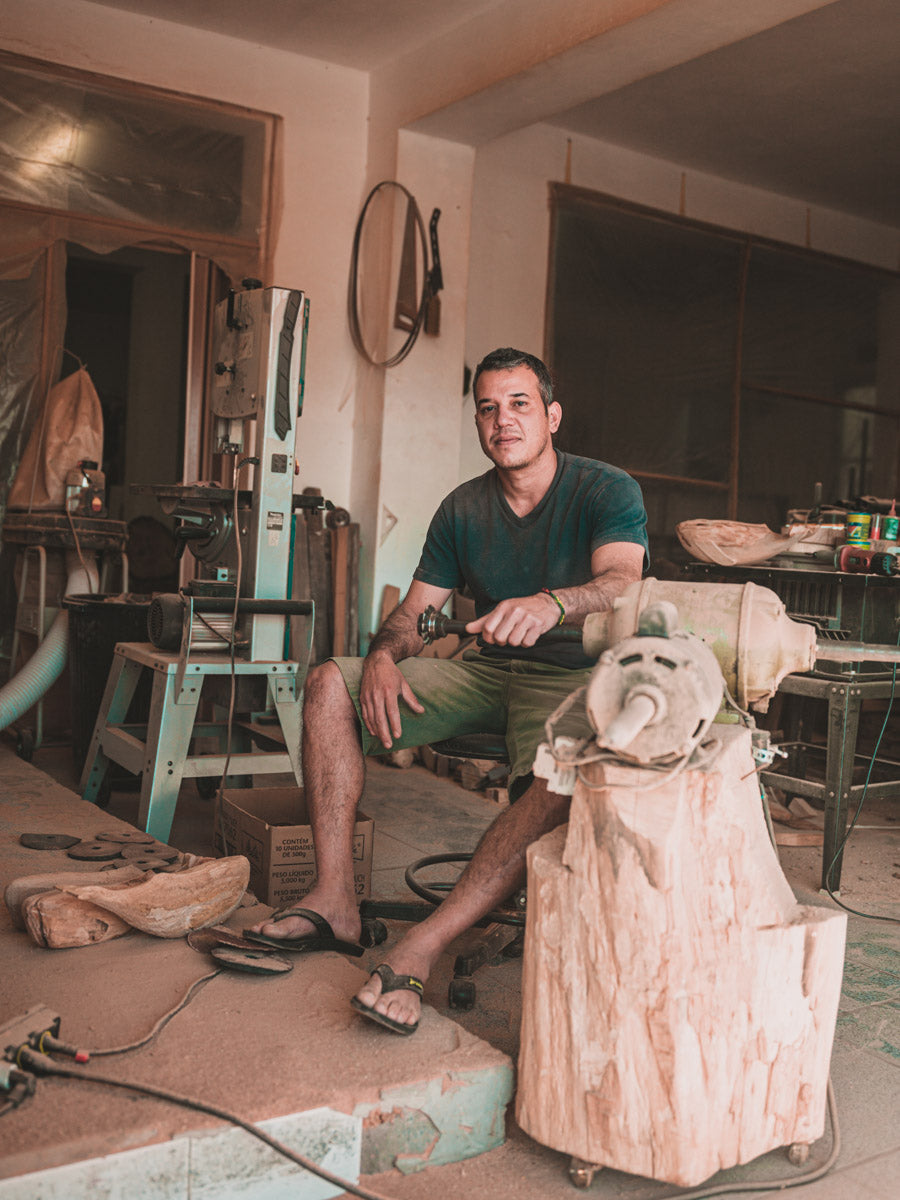Yureth


It is with both tradition and a visceral sentiment to land that artisanal woodworker Yuri creates from a point of presence, grace and tactile tradition. Originally from Cuba, he is now based in São Paulo, where he constructs vases from recycled and repurposed wood. The past 12 years led him to find an approach to wood that imbues both history and poetry. He discovered woodworking in high school on his walks home, while observing a man on a corner working with wood. Overtime he came to eventually help the man and be taught proper techniques and skills. Yuri’s intentional discovery became an outlet that he’d come to refine and nurture for years to come.
The woods he uses have different textures and imperfections, some being upwards of 100 years old. His philosophical lens of reconstruction of “defected wood” is a testament to honoring not only form, but also the greater reaches and intersections of the natural world. He sees the holes, the defects of his woods as teachers and opportunities to enrich his pieces. Through this perspective, his work is positioned as innately informed and interconnected, as he considers the architecture of ancient fossils and their complexity within the framework of engaging subtle nuances of form that don’t follow a linear or pre-subjected outline of aesthetic. In this way, Yuri’s natural and evocative pieces compel us to dive and reflect further upon presence and what being and evolving truly means. He encapsulates a great duality and freedom within his work that is both acceptance and devotion to form, with also his particular lens and way of creating.
“I just focus here, I am always in the moment, I live more in the moment than in the future ... I see the future in my pieces, only in my pieces, making pieces, making different pieces always and creating. The pieces will speak for themselves, and the future will take care of that.”
While drawing an immense reservoir of inspiration from his environment of São Paulo in the jungles, the beaches, the mountains, the rivers, the forests, he also attributes a great deal of influence from Afro-Cuban art and Cubist linework. In his curved treatment of the wood and concave detailing, there is a vividly clear attunement to both of these sources, which he marries seamlessly and makes entirely his own.


